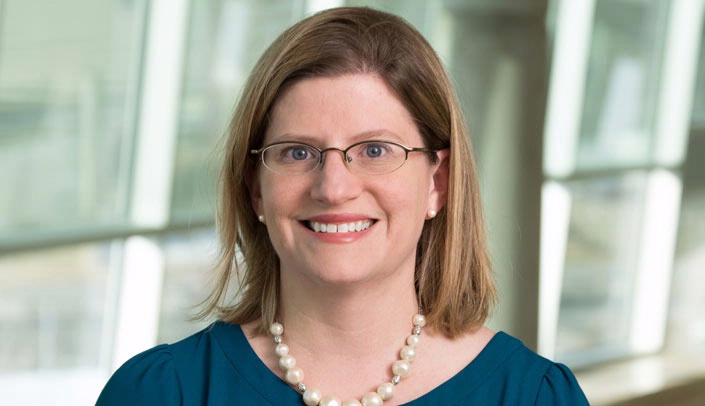The following is an excerpt of an article published by the National Strategic Research Institute. There is a link to the full article below.
It’s not surprising that Dr. Rebecca Oberley-Deegan became a scientist.
As an Iowa schoolgirl, she sometimes would go to work with her father, a free radical biologist.
“He would talk to me about his work, and it always interested me,” she said.
An uncle was a scientist, and her brother and a cousin also are scientists.
But there’s more to the story of how she became a respected researcher and expert in free radical compounds in her own right.
Dr. Deegan’s father suffered from kidney disease and required dialysis to stay alive. That exposure to what she calls “the marvels of medicine” had a big impact on her.
“It amazed me,” she said. “Seeing how science can help people have a good life was important to me.”
When her dad passed away, Dr. Deegan was working as a postdoctoral fellow and helping finish a stem cell project that her father had been working on with a colleague. Much of the work she does now at UNMC, as an associate professor of biochemistry and molecular biology, is related to a drug that mimics a protein her dad worked with.
“It is so rewarding to be kind of continuing his work,” Dr. Deegan said. “I think he would be amazed at how far things have come.”
Today, most of Dr. Deegan’s UNMC research is related to developing drugs that protect cancer patients from radiation. Due to this expertise, she was invited to join an interdisciplinary team researching new radiation drugs for warfighters, part of the Nebraska Drug Discovery and Development Pipeline (ND3P), a network of experts, facilities and technologies stimulated by the National Strategic Research Institute (NSRI) at the University of Nebraska for the U.S. Department of Defense (DOD).
Although the military and medical fields are very different, the DOD project is closely related to Dr. Deegan’s cancer research.
“It’s not a far stretch,” she said. “In the lab, I was looking for markers for targeted low-dose radiation damage in cancer patients. The mechanism and cell changes are the same with whole-body radiation.”
The new DOD research is highly focused on prevention of radiation damage, whereas past research has covered treatment after exposure.
“We are trying to identify new targets we haven’t thought of before,” Dr. Deegan said.
A key benefit of working with NSRI, she said, is the institute’s ability to connect researchers with the U.S. Strategic Command (STRATCOM) near Omaha, Neb., and other DOD customers. STRATCOM sponsors NSRI in the institute’s role as one of just a handful of DOD-designated University Affiliated Research Centers (UARCs) across the nation.

Congrats Dr. Deegan!
Inspiring story, congratulations Becky!
Congrats Dr. Deegan